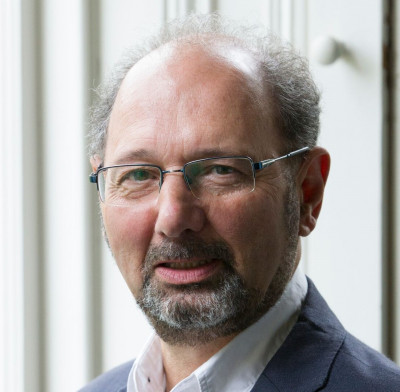Russian and European politics expert Professor Richard Sakwa elucidates on the background behind the recent rising tensions between Russia and Ukraine.
‘Why is Vladimir Putin, president of Russia since 2000, so obsessed with Ukraine? The answer is simple. All Russian leaders have been concerned about what is happening in such a close neighbour, with which there are so many economic, transport and family ties.
‘Since Ukraine became independent in late 1991, relations have never been easy. In the 1990s, when Boris Yeltsin occupied the Kremlin, there were endless conflicts over gas transit across the country to markets further to the West. Even then Crimea was an issue, the location of the massive Sevastopol naval facility where the Soviet Black Sea Fleet had been based.
‘Putin came to power eager to resolve the outstanding issues with Russia’s neighbours. This included ‘zero-option’ deals whereby the existing Soviet-era borders would be formally recognised through treaties, even when they made little sense in demographic or other terms. In other words, the idea was to move beyond the legacy of the Soviet collapse and to create new relationships based on respect for the sovereignty of the independent states. He also hoped to resolve the growing security confrontation in Europe, even suggesting that Russia could join NATO.
‘It is at this point that two factors intervened to poison relations between Russia and Ukraine. The first is that relations between the two countries cannot be understood separately from the larger geopolitical context of the post-Cold War era. From Moscow’s perspective the end of the cold war opened up the prospect of a new peace order in which Russia would take its rightful place in a transformed Western community. This certainly was the vision advanced by Mikhail Gorbachev as he transformed the Soviet Union in the late 1980s and brought the cold war to an end, and it was an aspiration shared later by Yeltsin and Putin. Instead of this model of a transformed European security system, Moscow was faced by an expanding Atlantic power system.
‘This is what Putin is now intent on stopping. Sabre-rattling and coercive diplomacy is not the best way of achieving results, but the Moscow leadership feels that its concerns have been ignored in the past, and is intent that it will not be ignored this time. A full-scale invasion is unlikely but would only be a last resort – and even then would be catastrophic for Russia, Ukraine and the world as a whole. It is time to go back to the spirit of 1990 and the unification of Germany, but this time for the real unification of Europe – with indivisible security for all.
‘Russia’s aspiration for a neutral, friendly, multilingual Ukraine is not unreasonable, above all for Ukraine itself. The alternative is unfortunately no longer unthinkable. In the first cold war we emerged relatively unscathed from the Cuban missile crisis in October 1962. We may not be so lucky this time.’
Richard Sakwa, Professor of Russian and European Politics at the School of Politics and International Relations.

